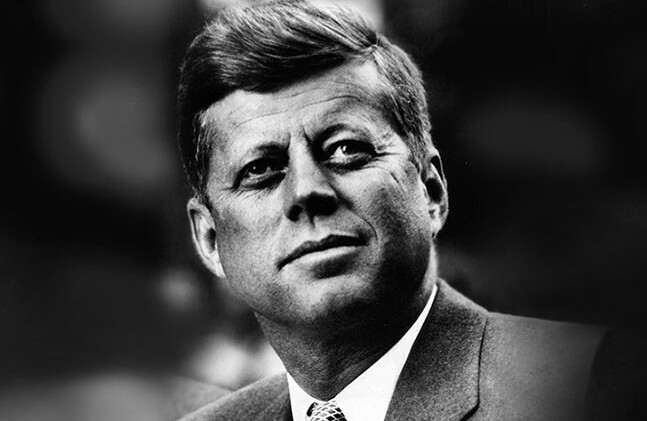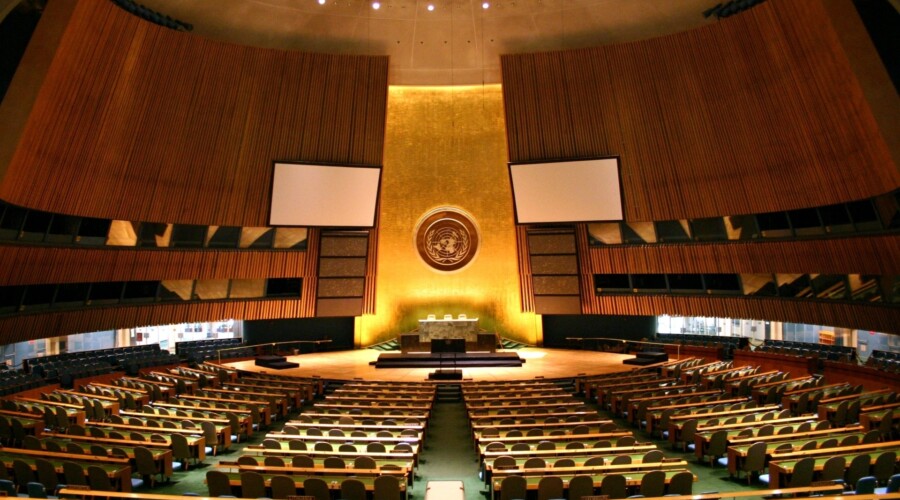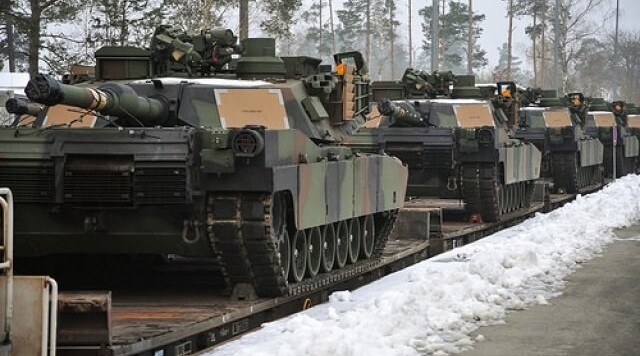Here follows the December 1963 lead editorial in the monthly Carnegie Council magazine, WORLDVIEW. Download a PDF of the original at the bottom of the page.
John F. Kennedy has been taken from us; there is an aching emptiness where there was once a bright presence. We are left now to assess his accomplishments and to meditate on the meaning of his death and the almost universal grief it inspired.
The first news of President Kennedy's death struck with such force that it was impossible immediately to acknowledge its impact. Frantic disbelief sought vainly to postpone the full realization that an assassin's bullet had deprived the world's strongest nation of its leader, that the president we knew as a powerful, intensely alive young man was dead. And that realization, when it came, brought with it a pain that was both sharp and penetrating, dull and lingering, a pain that was personal and collective.
And it brought the further realization that, immortality upon him, the president was now the possession of his fellow citizens. There would be nothing now to change the record of his days on earth—no further accomplishments, no additional failures and defeats, none of the vigorous campaigning he seemed to anticipate with pleasure, no more of the wit and charm and elegance and cool reason that contributed to his much vaunted style. This man, who was so conscious of the judgment of history, would be judged on the record he established in less than three years as president. On that record and a general feeling for the man and his aspirations. For John Kennedy's life was the kind of which legends are made, and already the myth-making powers are at work.
President Kennedy's most notable achievement was his leadership of the Western alliance. However great the responsibilities of other Western leaders, however eager they seemed to bear the burdens and set the directions, no one doubted that as the world is now organized the heaviest burden, the gravest responsibility, fell on the shoulders of the youngest world leader. It was Kennedy who was on this end of the hot line.
His youth and relative inexperience told against him in his initial encounters with Khrushchev, de Gaulle and others and were undoubted factors in the grotesquerie of the Bay of Pigs. But the decisiveness, the firmness, the restraint that he later showed, during the Cuban blockade for example, confirmed that he had the stature appropriate to the president of the United States. The subsequent test-ban treaty was, as he said, the first small step out of a darkness, a step toward a more rational method of negotiating differences in a nuclear age. It gave promise of further steps that might, with appropriate safeguards, be taken in the future. The pattern of behavior that was emerging here was present in his handling of other areas of foreign policy.
His domestic program is even more difficult to assess because it was, at the moment of his death, bogged down in a Congress divided against itself and against strong executive pressures. One's presuppositions, hopes and prejudices will probably decide how one judges the likely outcome of his domestic policies had he lived to fight them through. What he has left are some few resounding successes, such as the Peace Corps, and many eloquent, firm statements of political goals that will not soon be eroded by the passage of time.
---
But the evaluation of President Kennedy's record, even if carried out with sensitive discrimination and in detail, would not wholly account for the response his death drew from people around the world, for the numbers of young people who streamed into Washington and even now continue to file by his grave. It is not simply the incomplete record or the office of the Presidency that allowed this man, who in life was so frequently judged to be cool and calculating, to evoke in death such a deep, warm and spontaneous reaction.
John Kennedy's death was as a lightning flash across one's life and it threw the great matters of life, if only momentarily, into proper perspective. The substantial was revealed as substantial, the trivial as trivial and we were privileged, for a short time, to put the latter aside. That death also made clear the high relevance of the virtues that Kennedy admired and that he himself possessed. For it was an act of sudden violence and seeming futility that brought about the death of a man who epitomized the use of reason, patience, moderation, a man who emphasized the strength and the fragility of the measures that sustain our national life, and indeed the lives of millions around the world. His constant effort was to restrain the lawless, the possibly violent, whether the threat was domestic or foreign. Now that those major threats survive him almost undiminished, we may more nearly comprehend the undramatic virtues, the largely undramatic and sometimes ineffective measures, by which he sought to contain them.
His emphasis upon restraint and moderation was evident in many of his statements. In his "Strategy for Peace," for example, he said, "I speak of peace; therefore, as the necessary rational end of rational men. I realize that the pursuit of peace is not as dramatic as the pursuit of war, and frequently the words of the pursuer fall on deaf ears. But we have no more urgent task." This peace, he added, would be a "peace, based not on a sudden revolution in human nature but on a gradual evolution in human institutions—on a series of concrete actions and effective agreements which are in the interest of all concerned. There is no single, simple key to this peace, no grand or magic formula to be adopted by one or two powers. . . . For peace is a process, a way of solving problems."
And he was impressive, too, because he spoke—as could the leader of no other world power—as a person who was raised and hardened in a newer age. "Let the word go forth from this time and place, to friend and foe alike, that the torch has been passed to a new generation of Americans—born in this century, tempered by war, disciplined by a hard and bitter peace, proud of our ancient heritage—and unwilling to witness or permit the slow undoing of those human rights to which this nation has always been committed, and to which we are committed today at home and around the world."
He proved himself to be an exemplar of this new generation, displaying under pressure poise and wit, intelligence and directness. In addition, his young staff, his own physical grace, an attractive wife and young children all helped to make him a spokesman for youth and untried hopes around the world.
How this rare combination of abilities, qualities and circumstances will be assessed by history, which winnows and weighs without compassion, one cannot know. President Kennedy's record is not a full rounded thing but an untimely fragment with high spots and low, with more of promise than accomplishment. John F. Kennedy's personal characteristics did not win the allegiance of all and their vivid quality will pass with the memories of living men. Yet one can say with confidence that there was greatness in him and that his name will be sweet in history. We, who are diminished by his death, mourn for him.



